Artificial intelligence (AI) is no longer an inventive concept—it's a transformative power redefining how brands communicate, sell, and engage with customers. AI has firmly set itself at the heart of digital marketing, helping businesses deliver more intelligent, personalized, and results-driven strategies. From content creation to customer experience, let’s explore how AI is revolutionizing the marketing world.
What is AI?
Artificial intelligence refers to the simulation of human intelligence in tools that are programmed to think, learn, and adapt like humans. These intelligent systems analyze great amounts of data, recognize patterns, make decisions, and continuously get better through machine learning (ML) and deep learning algorithms. AI can understand natural language, analyze customer behavior, create content, and even respond to emotions, enabling businesses to make smarter, faster decisions.
Why Do We Need AI?
The digital marketing landscape is data-heavy and fast-moving. Human marketers alone cannot efficiently process the enormous amount of consumer data that leads to daily cross-platform interactions like websites, social media, emails, and search engines. It helps brands:
-
Understand customer behavior at scale
-
Automate repetitive tasks
-
Improve targeting and personalization
-
Drive higher engagement and ROI
In short, AI bridges the gap between data and decision-making, turning raw information into actionable insights in real-time.
Benefits of AI in Digital Marketing
1. Enhanced Customer Targeting
AI empowers digital marketers to understand their audience on a much deeper level. By analyzing vast amounts of user data such as behavior, preferences, demographics, and interactions, AI can identify patterns that humans may overlook. This allows marketers to segment audiences more accurately and create highly personalized campaigns that resonate with specific customer groups. As a result, businesses experience better engagement rates and improved return on investment (ROI).
2. Smarter Content Creation and Personalization
Artificial intelligence enables content to be tailored based on real-time user behavior. AI tools can recommend products, services, or blog posts that align with individual interests, boosting the likelihood of conversions. Beyond that, AI-driven copywriting tools can generate high-quality content like email subject lines, social media captions, and even blog outlines. These tools save time while maintaining consistency in tone, relevance, and effectiveness.
3. Automation of Repetitive Tasks
AI significantly reduces the workload of marketing teams by automating repetitive and time-consuming tasks. From scheduling social media posts to sending follow-up emails and managing ad bids, AI tools handle these functions with precision. This allows marketers to focus on strategy and creativity, improving productivity and campaign results. Automation also helps maintain consistency across channels, ensuring that no touchpoint is missed.
4. Advanced Data Analytics and Insights
One of the most powerful advantages of AI is its ability to process and analyze massive datasets in seconds. AI tools convert raw data into actionable insights by identifying trends, forecasting demand, and measuring performance. This leads to better decision-making and faster optimization of campaigns. With AI-powered dashboards, marketers can track KPIs, identify weak points, and adjust strategies in real time.
5. Improved Customer Experience
AI transforms the way brands interact with customers by enabling 24/7 support through chatbots, voice assistants, and recommendation engines. These AI-powered systems handle queries instantly, resolve issues, and guide users through their journey. The result is a smoother and more satisfying user experience that encourages trust and loyalty. Additionally, AI can predict customer needs and personalize interactions before a user even makes a request.
6. Cost Efficiency and Better ROI
AI helps companies reduce unnecessary expenses by optimizing ad placements, adjusting bidding strategies, and allocating budget more effectively. Campaigns powered by AI typically achieve better performance with fewer resources. This not only maximizes return on investment but also minimizes human errors that can lead to financial loss. Over time, businesses can scale their digital marketing efforts without a significant increase in costs.
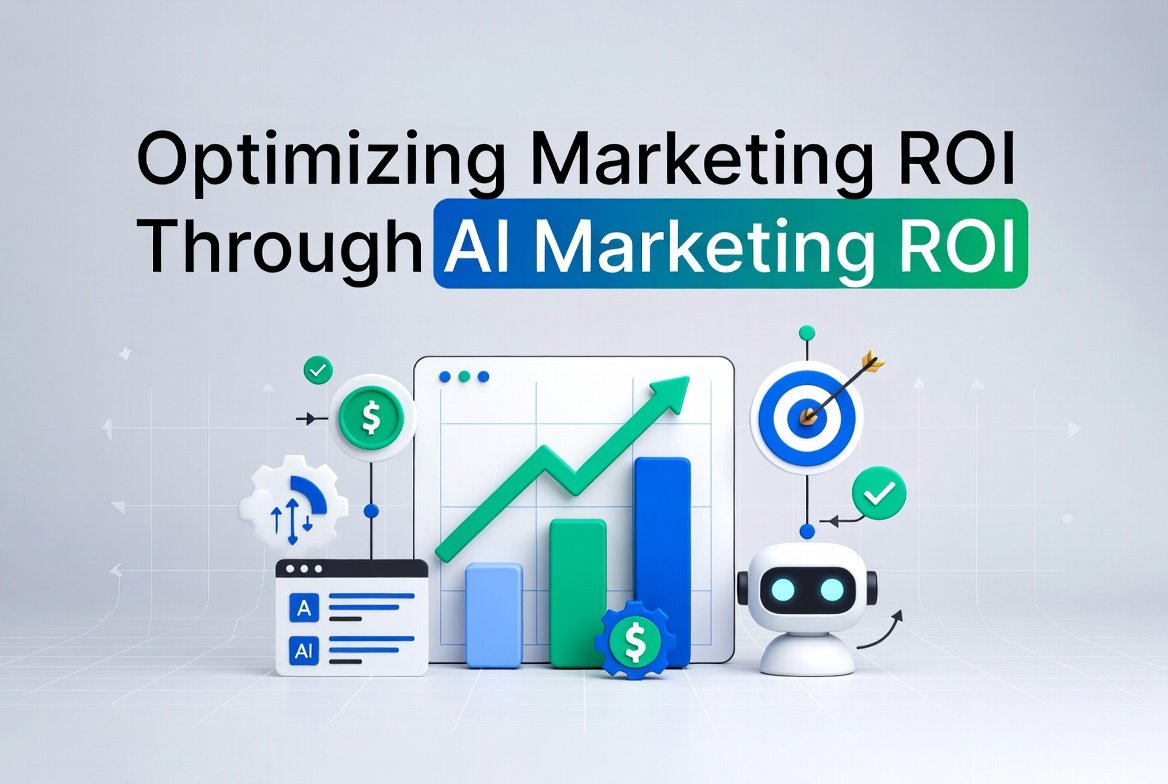
7. Enhanced SEO and Content Optimization
AI tools like natural language processing (NLP) and machine learning algorithms can suggest keywords, analyze competitor content, and optimize on-page SEO elements. These technologies ensure that content ranks higher on search engines and stays relevant to user intent. AI also monitors SERP trends and adjusts strategies to maintain visibility. For digital marketers, this means more organic traffic and stronger brand authority.
8. Real-Time Performance Tracking
AI continuously monitors marketing activities and provides real-time feedback. If an ad underperforms or a web page sees high bounce rates, AI tools can immediately notify the team and suggest improvements. This reduces campaign waste and allows quick pivots to more effective tactics. Real-time tracking also helps businesses stay agile and responsive in a fast-changing digital landscape.
What Can Be Done With AI?
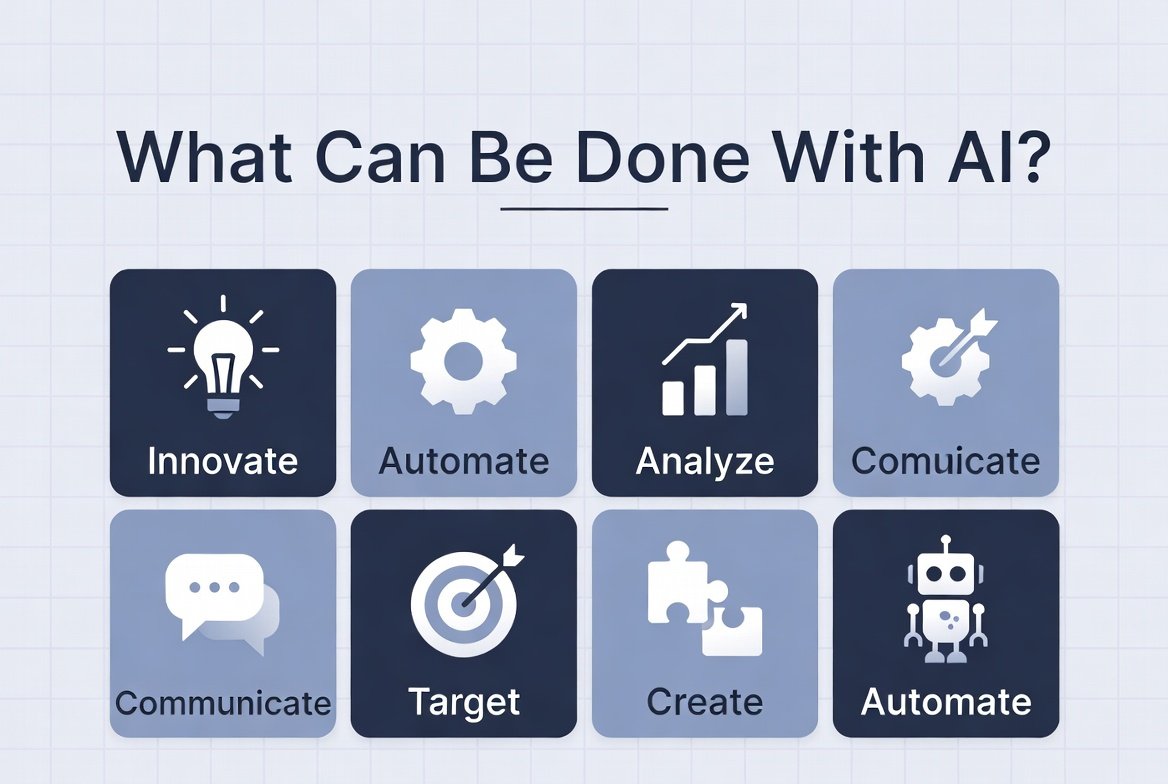
Artificial Intelligence (AI) has evolved into a powerful force capable of transforming industries, streamlining operations, and enhancing user experiences. In the world of digital marketing, AI isn’t just a buzzword—it’s a strategic tool that can handle complex tasks, make real-time decisions, and deliver measurable results. From automation to prediction, the scope of what AI can do is vast and constantly expanding.
1. Automate Repetitive Marketing Tasks
AI can take over routine marketing duties such as scheduling social media posts, managing email campaigns, and responding to customer inquiries. By doing this, it saves valuable time and ensures consistency in execution. Automation powered by AI allows marketers to focus more on creative strategy and less on administrative functions. As a result, campaigns become more scalable and efficient without the need for constant human intervention.
2. Predict Customer Behavior
AI systems can analyze customer behavior patterns and predict what users are likely to do next—such as which product they might purchase or when they’re likely to abandon a cart. These insights are used to create proactive marketing strategies that improve user engagement and drive higher conversions. Businesses can optimize their sales funnel and customize offers based on accurate, data-driven predictions.
3. Personalize User Experiences
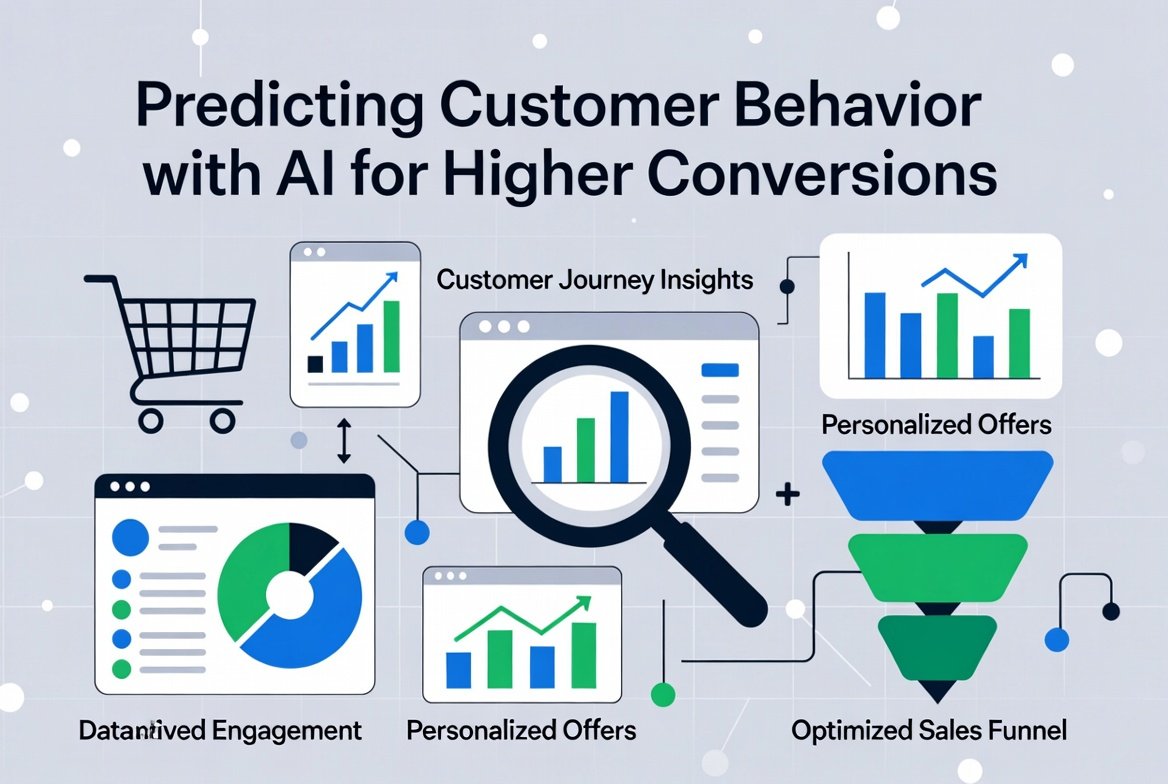
AI enables hyper-personalization by analyzing user data in real-time and customizing the experience for each visitor. This includes personalized product recommendations, dynamic website content, and targeted email messaging. When customers feel understood and valued, they are more likely to engage with your brand, increasing both satisfaction and loyalty. Personalization driven by AI leads to stronger relationships and higher lifetime customer value.
4. Improve Decision Making with Real-Time Insights
Marketers no longer have to rely solely on gut feeling or static reports. AI can provide real-time performance analysis, spot underperforming campaigns, and recommend adjustments instantly. This allows for agile decision-making based on up-to-date information, minimizing risks and maximizing campaign performance. AI-powered analytics help businesses stay competitive by reacting swiftly to market trends and consumer behavior.
5. Create Smart Chatbots and Virtual Assistants
AI can power intelligent chatbots that are capable of handling customer service, providing product information, scheduling appointments, and more—all in real time. These chatbots are available 24/7 and reduce the load on support teams while maintaining a high-quality customer experience. As natural language processing (NLP) evolves, these bots become increasingly human-like and efficient in resolving issues.
6. Optimize Advertising Campaigns
AI tools can analyze massive amounts of data to determine the best ad copy, design, target audience, timing, and placement. With automated A/B testing, AI continuously tweaks ads to find the most effective combinations. This kind of optimization not only improves click-through rates but also ensures every dollar spent on advertising is used wisely, leading to greater ROI.
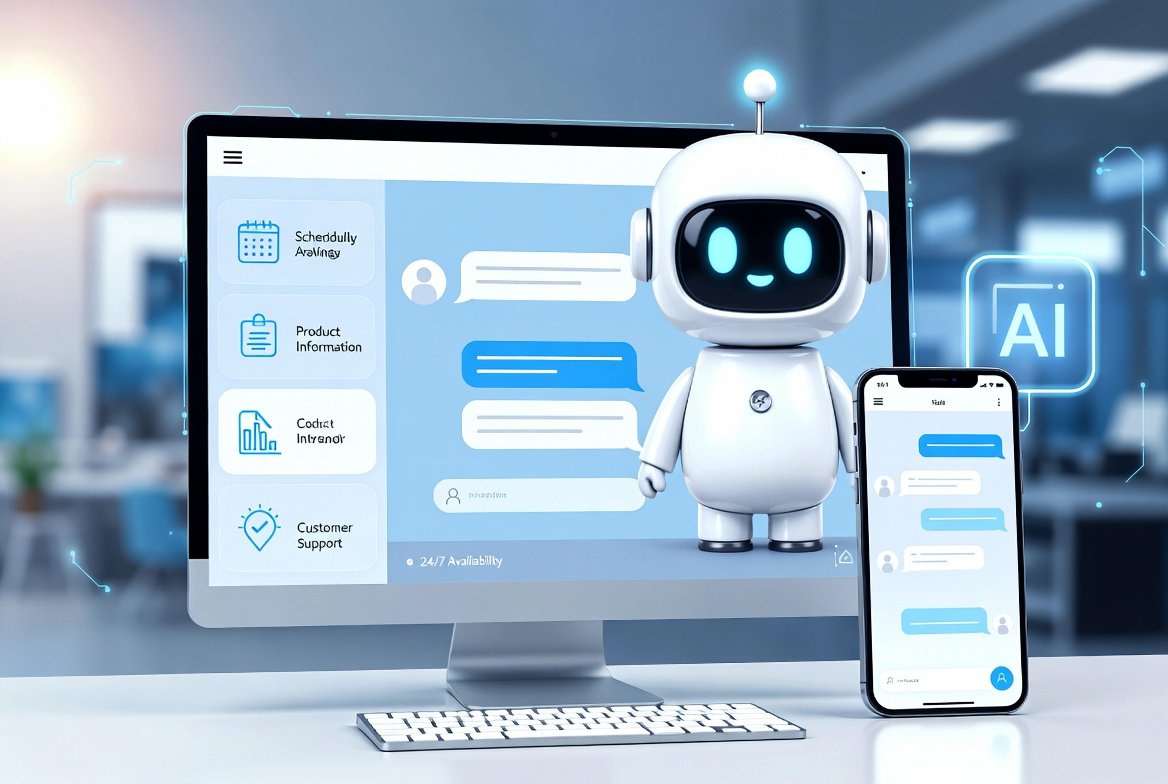
7. Enhance Content Strategy and SEO
AI supports content creation by suggesting trending topics, identifying high-performing keywords, and optimizing existing content for better search visibility. Tools driven by AI can even generate blog outlines, meta descriptions, and social posts. For SEO professionals, this means more effective keyword targeting, faster content production, and higher chances of ranking well on search engines.
8. Detect and Prevent Fraud
AI systems are also used in digital marketing to identify suspicious patterns and prevent fraudulent activities—especially in paid advertising campaigns. These systems can detect bot traffic, click fraud, and unusual engagement behavior. By minimizing such threats, AI helps protect your marketing investments and ensures accurate data for decision-making.
How AI is Impacting Digital Marketing in 2025
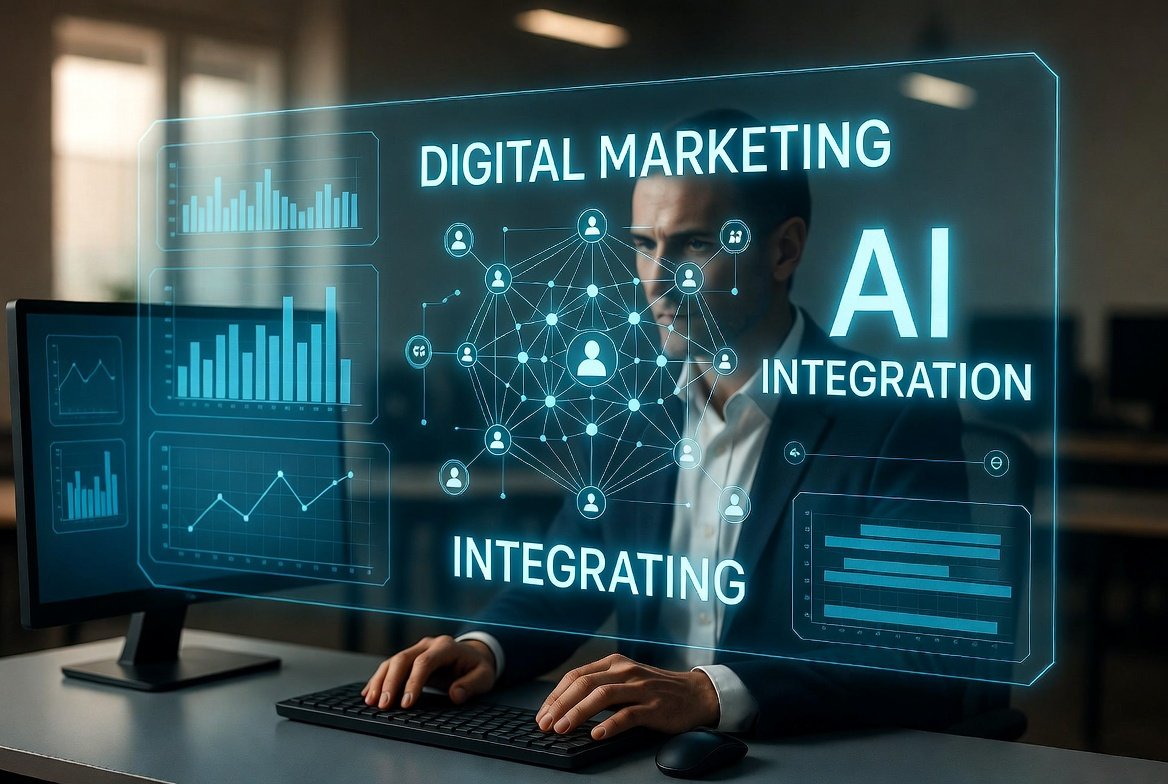
In 2025, AI is not just an add-on—it’s the backbone of innovative marketing strategies. Here’s how it's transforming the industry:
1. Hyper-Personalized Customer Experiences
AI allows marketers to deliver greatly individualized experiences by analyzing real-time user conduct. From personalized website content to dynamic email messages and product direction, AI makes sure each user gets exactly what they need—when they need it. Tools like AI-driven CRMs and recommendation engines track user behavior, interests, and interactions, helping brands build deeper emotional connections with their audiences.
2. Smarter Lead Generation and Scoring
AI helps businesses recognize high-quality leads by analyzing browsing behavior, engagement patterns, and demographic data. AI-powered platforms can predict which leads are more sure to convert, allowing sales teams to prioritize efforts efficiently. These smart systems constantly learn from past interactions, continuously improving the accuracy of lead scoring and nurturing strategies.
3. AI in SEO and Content Optimization
Gone are the days of supposition in SEO. In 2025, AI tools like Clear scope, Surfer SEO, and Google's own Rank Brain analyze search trends, keyword intention, and content performance to assist marketers in optimizing their pages for better rankings. AI also assists in generating optimized content ideas, evaluating readability, and ensuring consistency with user intent.
4. Automated Email Campaign Management
AI enhances email marketing by permitting dynamic segmentation, A/B testing, send-time optimization, and personalized content creation. With AI, emails are no longer just lump communications—they're intelligent conversations that evolve based on the user’s journey, increasing open rates, click-throughs, and conversions.
5. Chatbots and Conversational Marketing
In 2025, AI-powered chatbots are more advanced than ever. They can transfer out human-like conversations, sort out queries instantly, and even process transactions. Whether it’s Facebook Messenger, WhatsApp, or a website chatbot, conversational AI makes sure users receive fast, relevant, and personalized support—without waiting for a human agent.
6. Predictive Analytics for Campaign Success
AI can predict future outcomes based on historical data. This predictive capability helps marketers shift their strategies by anticipating customer behavior, campaign performance, and even whip rates. Businesses now create data-driven campaigns that are more likely to succeed, reducing guesswork and maximizing returns.
7. Social Media Marketing with AI
AI tools now control entire social media campaigns—from content organization to sentiment analysis. AI can analyze user interactions, identify trending topics, and optimize posting times to boost engagement. Platforms like Brand watch and Sprout Social use AI to monitor conversations, track competitors, and provide actionable insights.
8. AI in Ad Campaign Optimization
AI transforms paid advertising with real-time performance tracking, budget allocation, and smart bidding strategies. Whether it’s Google Ads or Facebook campaigns, AI algorithms determine the best-performing creatives, audience section, and placements. This leads to more efficient spending and higher ROI; make every ad dollar count.
The Future of Digital Marketing in 2030
| Area of Impact | AI Application | Expected Benefit | Estimated Impact by 2030 (%) |
|---|---|---|---|
| Emotional Intelligence | Emotion-Aware Marketing | Hyper-personalized content delivery based on real-time emotional cues | 85% |
| Campaign Management | Fully Autonomous Campaigns | Reduced manual effort; faster, data-driven campaign execution across channels | 80% |
| Content Creation | AI-Generated Video Content | Scalable, cost-effective video production with high engagement potential | 75% |
| Consumer Psychology | Neuro-Marketing Integration | Enhanced persuasion by aligning marketing with subconscious decision-making patterns | 70% |
| Search & Shopping Behavior | Voice Search & Voice Commerce | Increased accessibility; voice-first user journey optimization | 90% |
| SEO Strategy | Zero-Click SERPs Strategy | Stronger brand visibility without relying on website clicks | 88% |
| Pricing Models | Real-Time Sentiment-Based Pricing | Dynamic pricing based on market sentiment, increasing competitiveness and profits | 78% |
Where has Ai Digital Marketing Service spread its influence?
AI digital marketing services have spread their influence globally, transforming industries and reshaping marketing strategies. In North America, especially the USA and Canada, AI is heavily adopted by B2B companies, eCommerce brands, and real estate firms for tasks like lead generation, email automation, and predictive analytics. Across Europe, businesses contact AI for multilingual marketing, content personalization, and SEO optimization, all while to be GDPR-compliant. In Asia-Pacific, the growth is fueled by AI-powered advertising, chatbots, and influencer analytics. Meanwhile, regions like Australia and New Zealand are using AI to support small businesses with local SEO, email campaigns, and eCommerce automation. From healthcare and finance to education and SaaS, AI is now a vital part of digital marketing strategies, delivering smarter targeting, better engagement, and higher ROI across the board.
Final Thoughts
AI is reshaping digital marketing more speedily than we imagined. In 2025, it’s no longer optional—it's vital. Businesses that hold AI tools and strategies will thrive in the hyper-competitive landscape, while those that lag after may find it difficult to keep up. The future is intelligent, and AI is leading the charge.
